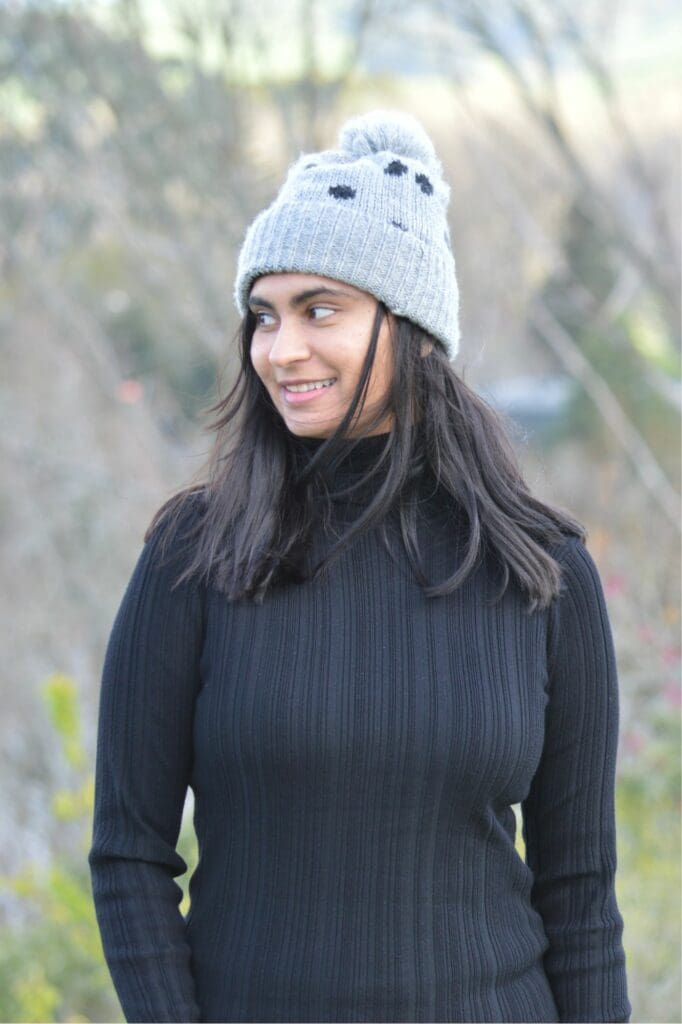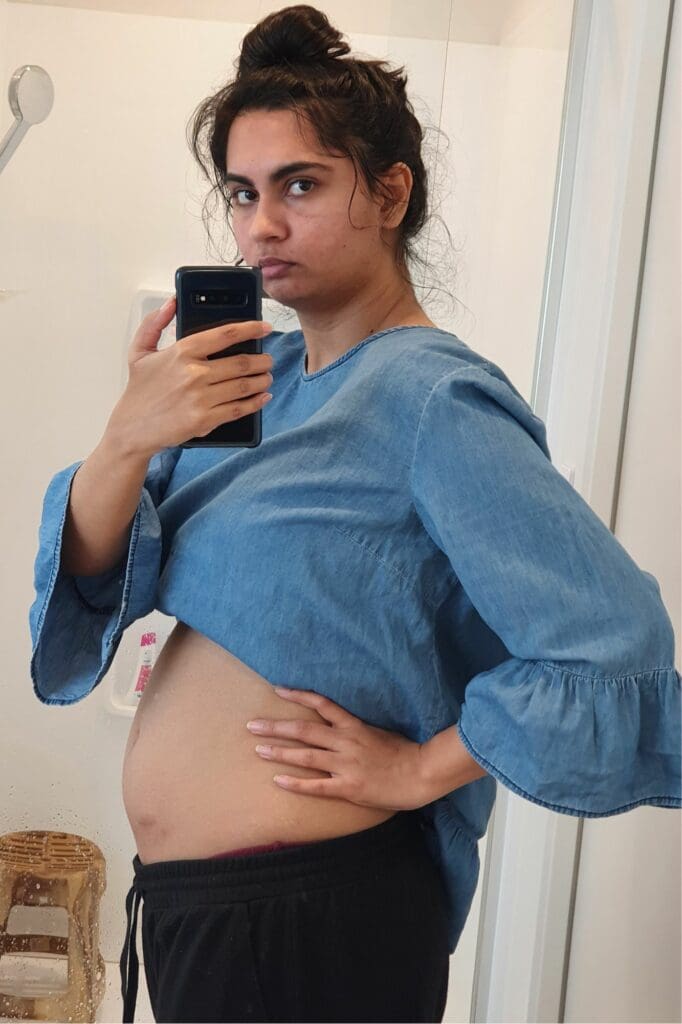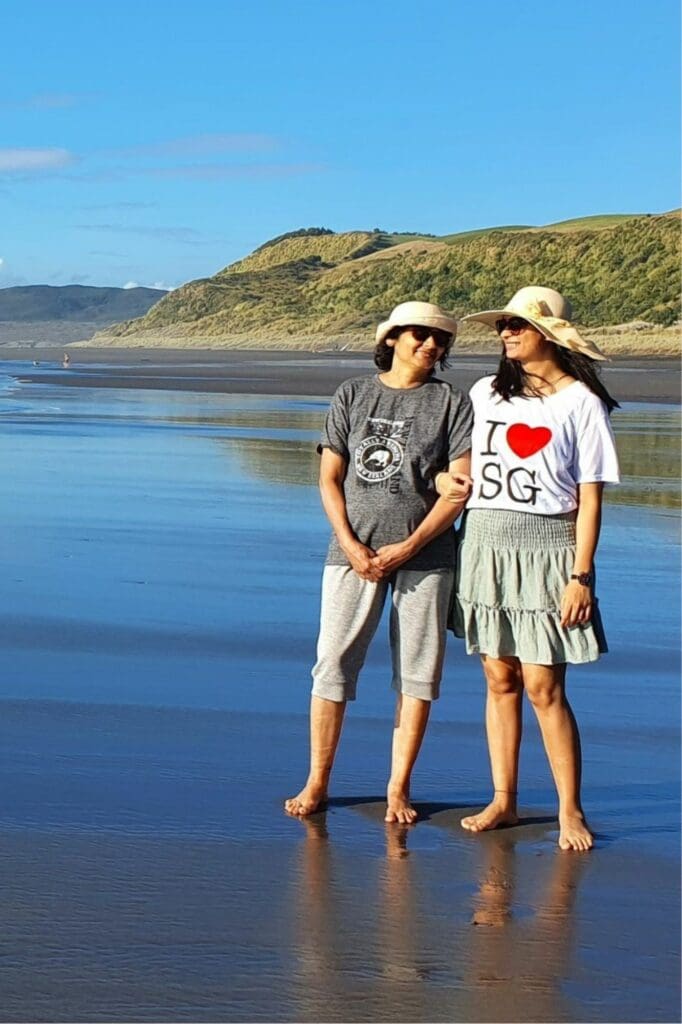One in 10 women are living with endometriosis – one of THE most painful medical conditions. Yet, it takes on average seven to 10 years to reach a diagnosis, with years of torment, pain – and loneliness – along the way. March is Endometriosis Awareness Week – so today, we’re talking to Sargam Polra who suffers from the hideous condition.
“You don’t look sick,” people used to say to Sargam. “You are too sensitive. Be strong!”

For a staggering fifteen years Sargam spent a lot of her life in profound, life-consuming agony, without any answers as to what was wrong with her.
During those years she went through hundreds of blood tests, more than 15 ultrasounds and MRI scans. She’d visited every specialist under the sun, including dozens of gynaecologists, physiotherapists, nutritionists, radiologists and psychologists. She’d tried going the natural route to ease her symptoms – yoga, homeopathy, allopathy, naturopathy, Ayurevda, plus every possible hormonal medication and injection. Nothing seemed to help.
Finally, on July 17th 2018, after laparoscopy surgery, was given answers. She was diagnosed with Grade 4 Endometriosis and Adenomyosis.
Sadly, as anyone who has endometriosis would know, it’s often a very long road to finally being diagnosed with the condition. In fact, globally, it takes an average of 7 – 10 years to be diagnosed – despite the frequent GP and emergency room visits that often go with the condition.
Considering endo effects 1 in 10 females and is known to be one of the most painful conditions you can go through (the NHS scores it in the top 20 alongside heart attacks and slipped discs), it’s extraordinary – and cruel – that so many women have to suffer for such lengths of time, before they are diagnosed.
Endometriosis is a chronic inflammatory disease where tissue similar to the lining of the uterus (endometrium), is found in places outside of the uterus. There is no cure for endometriosis and the cause is not fully understood.
This month is Endometriosis Awareness Month, which is why Sargam is speaking out about her experiences, in the hopes that her story might enlighten more kiwis about the impacts – and stigma – associated with endo. She also hopes it may make fellow sufferers feel less alone.
“I want to give a voice to all who suffer silently from any kind of illness,” she says. “I would encourage all endo warriors to come out and share their experiences and people around them to listen and support them. I am proud of you all my fellow endo warriors!!”
For Sargam, her nightmare with endo began when she was just 12 years old and first got her period.
“Before I got my first period, life was full of joy and adventure,” she tells. “I remember spending countless hours playing with friends, dancing, and discovering my passions. I loved make people around me happy with my energetic and outgoing personality.
“However, my first menstrual cycle was a horrible experience. I experienced very heavy bleeding that lasted for seven days, which was frightening and overwhelming.”


While at first, she just had extremely heavy periods to deal with, soon, she was also in a great deal of pain. That pain escalated until it became debilitating and was soon accompanied by migraines, muscle aches and extreme fatigue. Even brushing her teeth or taking a bath became too difficult when she was at her worst.
And, contrary to some belief, the pain of endo isn’t just limited to when you have your period.
“It is a constant battle that I face every day, every hour, and every second,” she clarifies. “The pain is chronic and varies in intensity, often becoming excruciating during flare-ups and time of stress. The pain is not limited to one area but spreads to various parts of my body, including my pelvic area, lower back, neck, thighs, and shoulders. It’s a debilitating feeling that can make even simple tasks like standing, sitting or walking incredibly challenging. I often feel like my body is much older than it should be, and my energy levels are consistently low due to the constant pain.”
The fact that the illness is invisible, only adds to the distress of it, as people can’t see how much you are truly suffering.
Sargam says she found the experience very isolating, particularly before she was diagnosed. It seemed that even doctors doubted what she was telling them and how she was feeling. It was so all-consuming, that it even made Sargam question whether she still wanted to be alive.
“People could not see my invisible illness so they assumed I was either playing the sympathy card or too weak to handle my disease,” she says. “After many episodes of gaslighting and judgements by people around me – including my friends and even doctors – I started isolating myself because I felt like a burden. I stopped talking about how I was feeling altogether. No doctor wanted to take my condition seriously and I could not understand why. I am not ashamed to say that the thought of ending my life crossed my mind a couple of times not because of just an illness, but I was constantly energy shamed by people around me. Nobody supported me. This illness had consumed so much of me – I felt as though I had no reason to live.”
Fortunately, there was one person who supported her 100% and helped her to get a diagnosis – as well as the 101 little things she needed help with, when she had no energy, or was in too much pain to do herself: her dear mum.
“The only light in my life was my guardian angel, my mother, Dhatri,” she tells. “I wouldn’t have alive on this earth without my mother’s constant love, care and support. While the whole world was trying to convince me that I was crazy, mum was the only one who stood by me. She fed me when I could barely get out of bed, kept my spirits high when I had given up hope, and was my sole pillar of strength. I knew that my condition was extremely hard on her but despite her sacrifices, she never complained.”


Now, things have certainly improved, but endo continues to have a significant impact on the quality of Sargam’s life.
“I get flare ups anytime and get tired easily. Sometimes, doing routine activities like brushing your teeth, taking a shower or going to grocery shopping takes a great amount of energy and planning. I need to follow a strict anti- inflammatory diet to live a bit normal life. It’s an invisible complex disease, so your body is constantly fighting but nobody can see that from outside.”
Sadly, the disease has robbed Sargam of her dream of becoming a professional classical dancer and choreographer, but she says she still makes a point to dance whenever she can, despite the challenges, even if it’s just for a minute. She works as a Data Analyst, and spends as much time close to nature as she can.
Personally, she says her hope for herself is that she finds a “loving, caring, and supportive partner with whom I can share beautiful moments in this wonderful life.” Plus, she has a lot of hopes around how the world could be more understanding of conditions like endo – and hopefully find cures to eliminate them entirely.
But it starts with people understanding the illness better – including doctors – to ensure that its sufferers feel seen, believed and cared for.
“I often think about how different life would have been if the doctors had believed me and diagnosed me earlier. If the people in my life were kinder, I might not have suffered so much emotionally and mentally. If employers had more knowledge about this condition, I might have had a shot at a successful career. But I’m also grateful that it strengthened my relationship with my mum, and taught me to listen to my body, and love myself unconditionally.”


